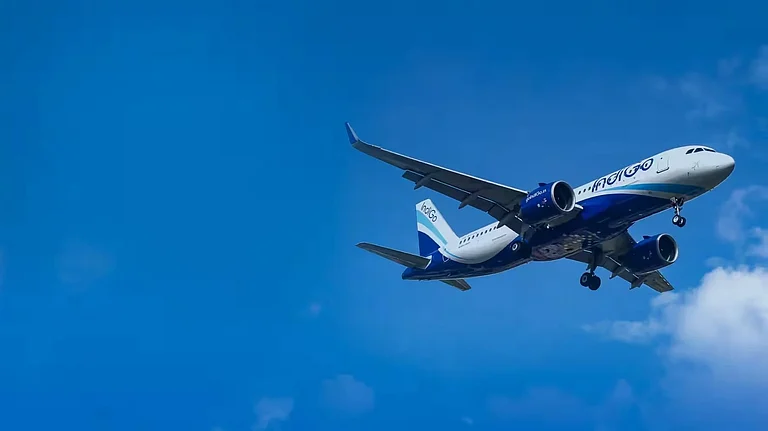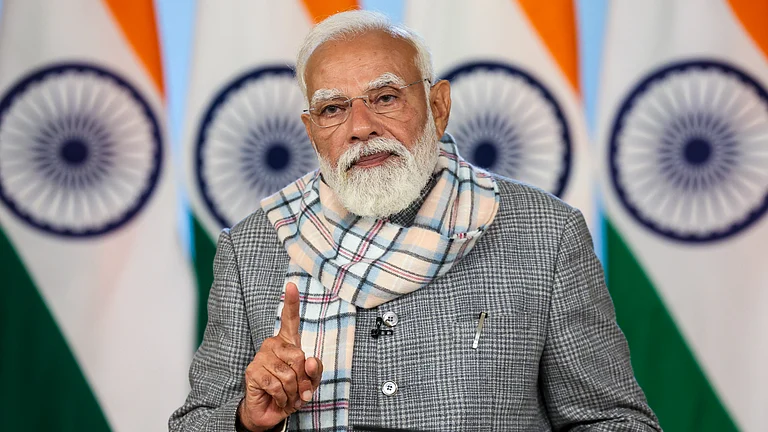Highlighting the growth potential of the country's aviation sector, Prime Minister Narendra Modi on Thursday said air travel in the country has become inclusive and affordable with the regional connectivity scheme as more people are travelling by air from smaller cities.
Modi also told representatives of Asia Pacific countries that they could also study the success of the scheme -- UDAN -- and pitched for creating a "network of opportunities" through aviation in the region.
Addressing the second Asia Pacific Ministerial Conference on Civil Aviation in the national capital, attended by nearly 300 representatives from 29 countries, Modi also suggested the idea of an international Buddhist circuit by way of Air connectivity that will benefit countries and people.
The prime minister emphasised efforts to create a network of opportunities in the Asia Pacific region that will drive economic growth, encourage innovation, and strengthen peace and prosperity.
"To shape the aviation future is our shared commitment," Modi said and highlighted the importance of innovation and sustainable growth.
The growing middle class and demand created by them is a driving force for the aviation sector, he said.
Indian airlines are expanding their fleet and network, and initiatives are being taken to make the country a global aviation hub.
According to him, the country's aviation sector has seen unprecedented growth in the last 10 years, and the sector has become "inclusive" compared to the past when it was only exclusive to some people.
Under the UDAN (Ude Desh ka Aam Nagrik) scheme, 14 million people have travelled, with many of them seeing the inside of an aircraft for the first time, he said.
The scheme has allowed the lower middle class to travel by air, he said and added that the aim is to make "air travel safe, affordable and accessible to all".
India is a strong pillar of the aviation ecosystem and one of the top civil aviation markets. India will become one of the countries with the most air connectivity, and efforts are also on to make it a global aviation hub, the prime minister said.
If the entire Asia is connected with the Buddhist circuit, it will be a win-win model for countries and people, Modi said and also suggested having a comprehensive approach with respect to air routes taken by professionals in the Asia Pacific region, which is also a business hub.
Apart from investments in infrastructure, he said there is a need for skilled manpower, and upgraded technology for the development of the aviation sector.
The sector creates highly skilled jobs, Modi said and stressed the women-led development of the aviation segment.
In India, 15 per cent of the pilots are women, while the global average is 5 per cent, he noted.
Amid rising travel demand, initiatives are also being taken to promote advanced air mobility.
"The day is not far when travel by air taxi will be a reality," he said.
The prime minister also proclaimed the Delhi Declaration at the conclusion of the two-day conference.
Civil Aviation Minister K Rammohan Naidu said India is set to achieve its goal of having 350-400 airports by 2047.
ICAO (International Civil Aviation Organization) Council President Salvatore Sciacchitano said the primary focus is to continue to pursue high levels of safety and security.
"We must remain focused on enhancing these fundamental aspects of aviation, not allowing ourselves to become complacent when we consider the very positive statistics," he said.
Among others, Minister of State for Civil Aviation Murlidhar Mohol and Civil Aviation Secretary Vumlunmang Vualnam were also present.































